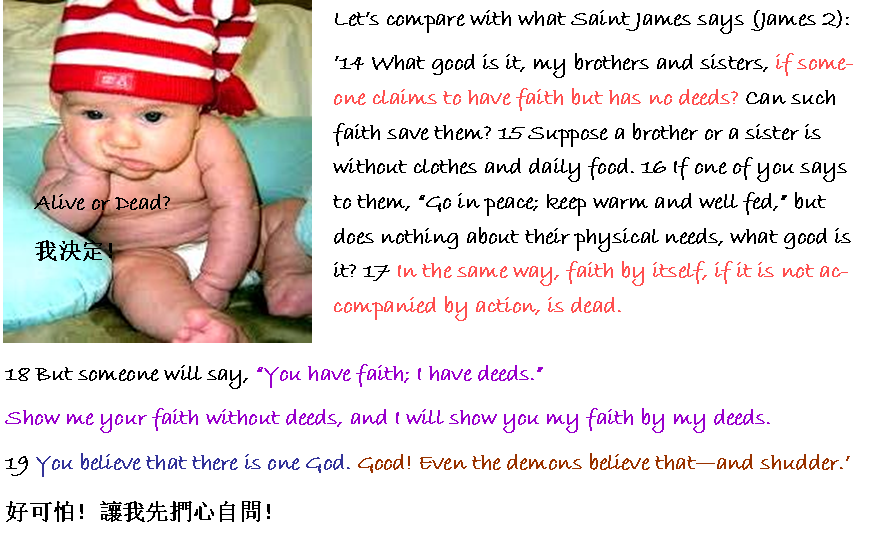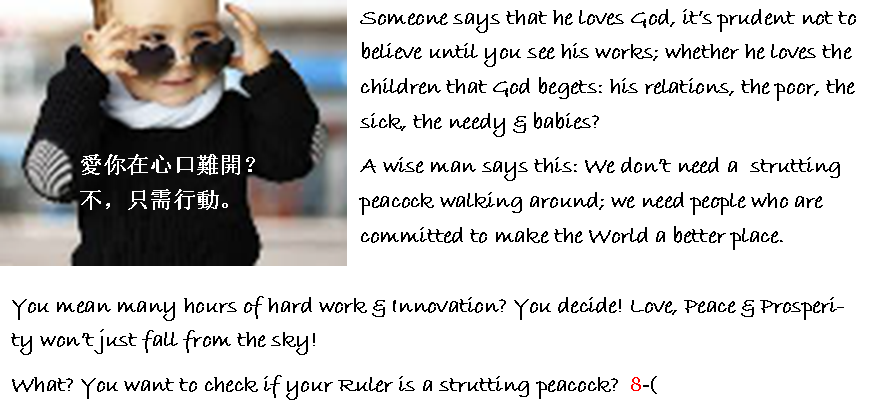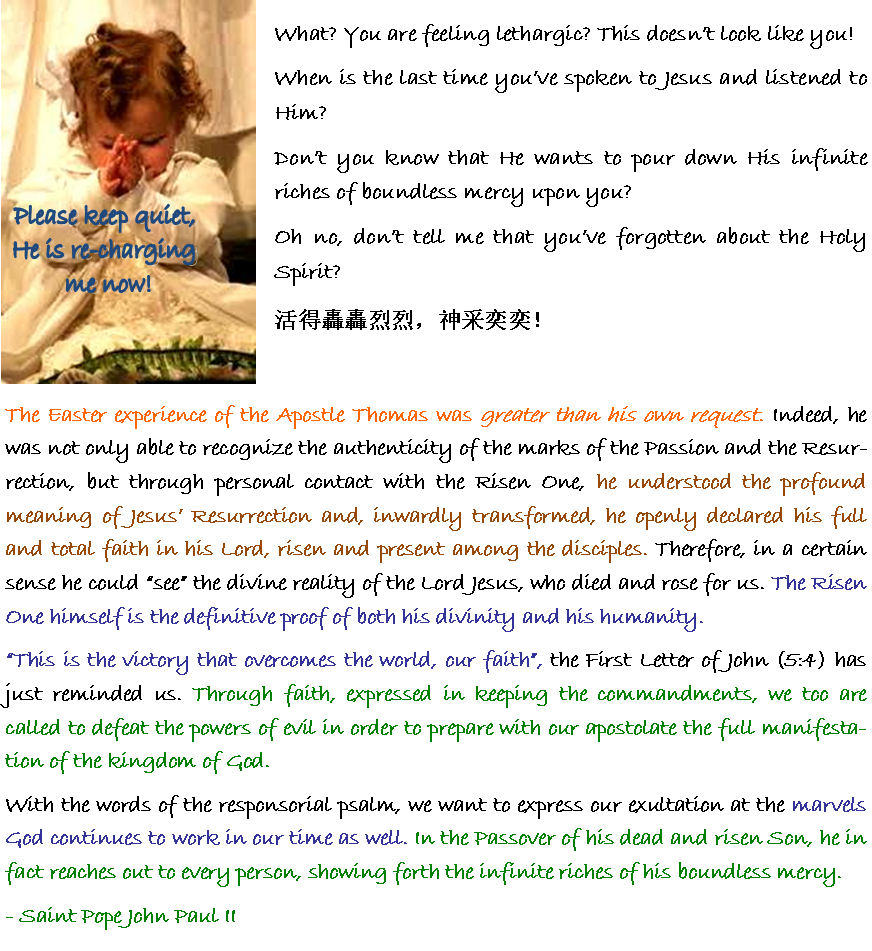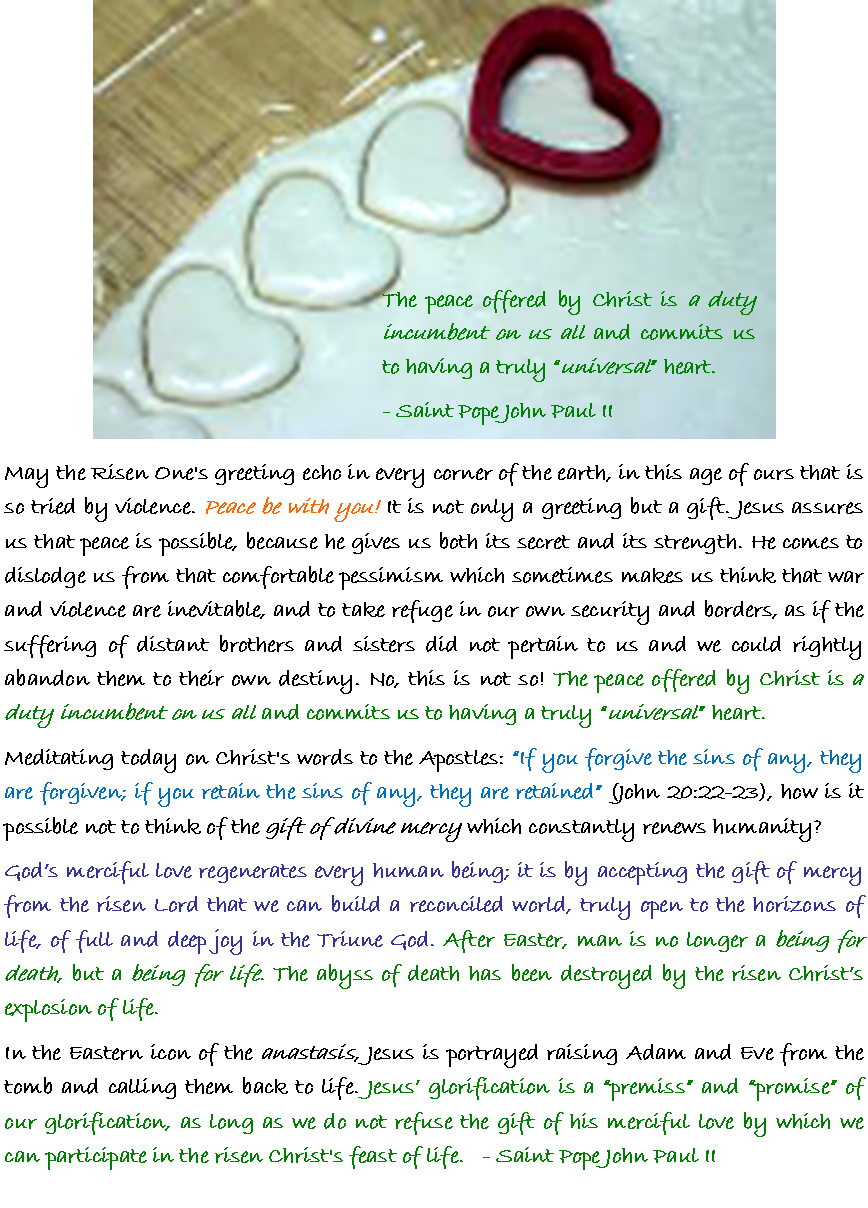|
177 |
|
Why was this? The darkness that poses a real threat to mankind, after all, is the fact that he can see and investigate tangible material things, but cannot see where the world is going or whence it comes, where our own life is going, what is good and what is evil. The darkness enshrouding God and obscuring values is the real threat to our existence and to the world in general. If God and moral values, the difference between good and evil, remain in darkness, then all other “lights”, that put such incredible technical feats within our reach, are not only progress but also dangers that put us and the world at risk. Today we can illuminate our cities so brightly that the stars of the sky are no longer visible. Is this not an image of the problems caused by our version of enlightenment? With regard to material things, our knowledge and our technical accomplishments are legion, but what reaches beyond, the things of God and the question of good, we can no longer identify. Faith, then, which reveals God’s light to us, is the true enlightenment, enabling God’s light to break into our world, opening our eyes to the true light.
Dear friends, as I conclude, I would like to add one more thought about light and illumination. On Easter night, the night of the new creation, the Church presents the mystery of light using a unique and very humble symbol: the Paschal candle. This is a light that lives from sacrifice. The candle shines inasmuch as it is burnt up. It gives light, inasmuch as it gives itself. Thus the Church presents most beautifully the paschal mystery of Christ, who gives himself and so bestows the great light. Secondly, we should remember that the light of the candle is a fire. Fire is the power that shapes the world, the force of transformation. And fire gives warmth. Here too the mystery of Christ is made newly visible. Christ, the light, is fire, flame, burning up evil and so reshaping both the world and ourselves. “Whoever is close to me is close to the fire,” as Jesus is reported by Origen to have said. And this fire is both heat and light: not a cold light, but one through which God’s warmth and goodness reach down to us.
The great hymn of the Exsultet, which the deacon sings at the beginning of the Easter liturgy, points us quite gently towards a further aspect. It reminds us that this object, the candle, has its origin in the work of bees. So the whole of creation plays its part. In the candle, creation becomes a bearer of light. But in the mind of the Fathers, the candle also in some sense contains a silent reference to the Church,. The cooperation of the living community of believers in the Church in some way resembles the activity of bees. It builds up the community of light. So the candle serves as a summons to us to become involved in the community of the Church, whose raison d’être is to let the light of Christ shine upon the world.
Let us pray to the Lord at this time that he may grant us to experience the joy of his light; let us pray that we ourselves may become bearers of his light, and that through the Church, Christ’s radiant face may enter our world (cf. LG 1). Amen. |

|
EASTER VIGIL IN THE HOLY NIGHT HOMILY OF HIS HOLINESS POPE FRANCIS Vatican Basilica
Tonight is a night of vigil. The Lord is not sleeping; the Watchman is watching over his people (cf. Psalm 121:4), to bring them out of slavery and to open before them the way to freedom. The Lord is keeping watch and, by the power of his love, he is bringing his people through the Red Sea. He is also bringing Jesus through the abyss of death and the netherworld.
This was a night of vigil for the disciples of Jesus, a night of sadness and fear. The men remained locked in the Upper Room. Yet, the women went to the tomb at dawn on Sunday to anoint Jesus’ body. Their hearts were overwhelmed and they were asking themselves: “How will we enter? Who will roll back the stone of the tomb?…” But here was the first sign of the great event: the large stone was already rolled back and the tomb was open!
“Entering the tomb, they saw a young man sitting on the right side, dressed in a white robe…” (Mark 16:5). The women were the first to see this great sign, the empty tomb; and they were the first to enter…
“Entering the tomb”. It is good for us, on this Vigil night, to reflect on the experience of the women, which also speaks to us. For that is why we are here: to enter, to enter into the Mystery which God has accomplished with his vigil of love.
We cannot live Easter without entering into the mystery. It is not something intellectual, something we only know or read about… It is more, much more!
“To enter into the mystery” means the ability to wonder, to contemplate; the ability to listen to the silence and to hear the tiny whisper amid great silence by which God speaks to us (cf. 1 Kings 19:12).
To enter into the mystery demands that we not be afraid of reality: that we not be locked into ourselves, that we not flee from what we fail to understand, that we not close our eyes to problems or deny them, that we not dismiss our questions…
To enter into the mystery means going beyond our own comfort zone, beyond the laziness and indifference which hold us back, and going out in search of truth, beauty and love. It is seeking a deeper meaning, an answer, and not an easy one, to the questions which challenge our faith, our fidelity and our very existence.
To enter into the mystery, we need humility, the lowliness to abase ourselves, to come down from the pedestal of our “I” which is so proud, of our presumption; the humility not to take ourselves so seriously, recognizing who we really are: creatures with strengths and weaknesses, sinners in need of forgiveness. To enter into the mystery we need the lowliness that is powerlessness, the renunciation of our idols… in a word, we need to adore. Without adoration, we cannot enter into the mystery.
The women who were Jesus’ disciples teach us all of this. They kept watch that night, together with Mary. And she, the Virgin Mother, helped them not to lose faith and hope. As a result, they did not remain prisoners of fear and sadness, but at the first light of dawn they went out carrying their ointments, their hearts anointed with love. They went forth and found the tomb open. And they went in. They had kept watch, they went forth and they entered into the Mystery. May we learn from them to keep watch with God and with Mary our Mother, so that we too may enter into the Mystery which leads from death to life.
Other Homilies:
Saint Pope John Paul II: 1998 Easter Vigil (Encouragements-222), 1999 Easter Vigil (Encouragements-396), 2000 Easter Vigil (Encouragements-396), 2001 Easter Vigil (Encouragements-397), 2002 Easter Vigil (Encouragements-397), 2003 Easter Vigil (Encouragements-398) & 2004 Easter Vigil (Encouragements-398).
Pope Benedict XVI: 2007 Easter Vigil (Encouragements-398) & 2010 Easter Vigil (Encouragements-222).
Pope Francis I: 2013 Easter Vigil (Encouragements-223) & 2014 Easter Vigil (Encouragements-399).
Acknowledgment: We thank the Vatican Publisher for allowing us to publish the Homilies of Saint Pope John Paul II, Pope Benedict XVI & Pope Francis I, so that they could be accessed by more people all over the world; as a source of God’s encouragements to all of us.
7 June 2015, 15:00 SGT |
|
JOHN PAUL II ‘REGINA CAELI’ Sunday, 6 April 1997
1. “Peace be with you!” (John 20:19-21). This is the risen Lord’s greeting to the Apostles. In today’s liturgy we hear it several times. Peace be with you! It was the customary Jewish greeting, but on Jesus’ lips it is filled with new meaning. The Risen One presents himself as the source of peace, a peace that is not merely the absence of war but full communion with God and with our brothers and sisters.
May the Risen One's greeting echo in every corner of the earth, in this age of ours that is so tried by violence. Peace be with you! It is not only a greeting but a gift. Jesus assures us that peace is possible, because he gives us both its secret and its strength. He comes to dislodge us from that comfortable pessimism which sometimes makes us think that war and violence are inevitable, and to take refuge in our own security and borders, as if the suffering of distant brothers and sisters did not pertain to us and we could rightly abandon them to their own destiny. No, this is not so! The peace offered by Christ is a duty incumbent on us all and commits us to having a truly “universal” heart.
2. Meditating today on Christ's words to the Apostles: “If you forgive the sins of any, they are forgiven; if you retain the sins of any, they are retained” (John 20:22-23), how is it possible not to think of the gift of divine mercy which constantly renews humanity?
God’s merciful love regenerates every human being; it is by accepting the gift of mercy from the risen Lord that we can build a reconciled world, truly open to the horizons of life, of full and deep joy in the Triune God. After Easter, man is no longer a being for death, but a being for life. The abyss of death has been destroyed by the risen Christ’s explosion of life.
In the Eastern icon of the anastasis, Jesus is portrayed raising Adam and Eve from the tomb and calling them back to life. Jesus’ glorification is a “premiss” and “promise” of our glorification, as long as we do not refuse the gift of his merciful love by which we can participate in the risen Christ's feast of life.
3. May the Blessed Virgin help us to make her Son’s new life our own, by accepting the gift of divine mercy which enables us to be artisans of forgiveness, reconciliation and peace. May she inspire in all who have governmental responsibilities at the national and international level the necessary courage to intervene promptly and wisely in difficult situations before they become irreparable and more blood is shed in vain. -----------------------------------------------------
After praying the Regina Caeli, the Holy Father said:
I greet the Italian-speaking pilgrims, in particular the volunteers of the “Parkinson Action” association and I hope that the World Day of Parkinson's, taking place next Friday, will help sensitize public opinion to this disease and assist all who are afflicted with it.
I greet the Shalom Choir of the parish of Marsico Nuovo, Potenza; the faithful of St Justina in Rimini, a parish — the only one in Italy — which last summer welcomed the body of St Therese of the Child Jesus, the 100th centenary of whose death we are celebrating this year.
I hope you all have a pleasant Sunday, in the peace of the risen Christ!
On this Sunday on which the Church recalls the appearance of the risen Christ to the Apostle Thomas, I extend a special greeting to the priests, religious and laity of the Syro-Malabar and Syro-Malankara Churches present here in St Peter’s Square. I pray that the ancient Eastern-rite Churches of the St Thomas Christians will continue to flourish and to grow in mutual co-operation, missionary zeal and ecumenical understanding. Upon all the English-speaking pilgrims present I invoke the grace and peace of the Lord.
Thank you for taking part in this beautiful prayer of the Regina Caeli. The weather has changed somewhat since this morning. This morning it was very sunny; now we cannot even see Monte Cavo, but rain too serves a purpose. Best wishes for the trip to Sarajevo in a week’s time. -----------------------------------------------
At the recitation of the Regina Caeli on Sunday, 6 April, the Holy Father appealed to world leaders to protect children from becoming participants in warfare.
Over the next few days, the United Nations Commission for Human Rights, currently meeting in Geneva, will be addressing child rights and, in particular, the legal protection of minors in armed conflicts. I have mentioned this troubling issue several times, as well as in last year's message for the World Day of Peace.
I would like to stress the Church’s deep concern about respect for the child and for the integral and harmonious development of his personality. I therefore renew my appeal to political and social leaders that, inspired by the principles of morality and law, they will do everything to prevent children from becoming participants in war, being forced to bears arms and kill their peers. If we want peace, let us teach peace to those who are being prepared to build the society of the future.
14 June 2015. 15:00 SGT |

|
Second Sunday of Easter, First Reading: Acts of the Apostles 4:32-35 The whole group of believers was united, heart and soul; no one claimed for his own use anything that he had, as everything they owned was held in common. The apostles continued to testify to the resurrection of the Lord Jesus with great power, and they were all given great respect. None of their members was ever in want, as all those who owned land or houses would sell them, and bring the money from them, to present it to the apostles; it was then distributed to any members who might be in need. |

|
Second Sunday of Easter, Responsorial: Psalm 117:2-4, 15-18, 22-24 Response : Give thanks to the Lord for he is good, for his love has no end.
Let the sons of Israel say: ‘His love has no end.’ Let the sons of Aaron say: ‘His love has no end.’ Let those who fear the Lord say: ‘His love has no end.’
The Lord’s right hand has triumphed; his right hand raised me up. I shall not die, I shall live and recount his deeds. I was punished, I was punished by the Lord, but not doomed to die.
The stone which the builders rejected has become the corner stone. This is the work of the Lord, a marvel in our eyes. This day was made by the Lord; we rejoice and are glad. |

|
Second Sunday of Easter, Second Reading: 1 John 5:1-6 Whoever believes that Jesus is the Christ has been begotten by God; and whoever loves the Father that begot him loves the child whom he begets. We can be sure that we love God’s children if we love God himself and do what he has commanded us; this is what loving God is – keeping his commandments; and his commandments are not difficult, because anyone who has been begotten by God has already overcome the world; this is the victory over the world – our faith. Who can overcome the world? Only the man who believes that Jesus is the Son of God: Jesus Christ who came by water and blood, not with water only, but with water and blood; with the Spirit as another witness – since the Spirit is the truth.
Gospel Acclamation John 20:29 Alleluia, alleluia! Jesus said: ‘You believe because you can see me. Happy are those who have not seen and yet believe.’ Alleluia! |
|
The disciples were busying closing the doors and shutting the windows, so afraid of the “big bullies”! Not until they received the Holy Spirit! The Holy Spirit inside you will make you powerful and courageous, smarter than your enemies and induce fear in them! Yes, provided that God is on your side! These are His promises: “The enemies who attack you, Yahweh will defeat before your eyes; they will advance on you from one direction and flee from you in seven.” (Deuteronomy 28:7, Encouragements-12) & “You will pursue your enemies and they will fall before your sword; Five (5) of you pursuing a hundred (100) of them, one hundred (100) pursuing ten thousand (10,000); and your enemies will fall before your sword.” (Leviticus 26:7-8, Encouragements-81) Very Good! 8-)
Second Sunday of Easter, Gospel Reading: John 20:19-31 In the evening of that same day, the first day of the week, the doors were closed in the room where the disciples were, for fear of the Jews. Jesus came and stood among them. He said to them, ‘Peace be with you’, and showed them his hands and his side. The disciples were filled with joy when they saw the Lord, and he said to them again, ‘Peace be with you. ‘As the Father sent me, so am I sending you.’ After saying this he breathed on them and said: ‘Receive the Holy Spirit. For those whose sins you forgive, they are forgiven; for those whose sins you retain, they are retained.’ Thomas, called the Twin, who was one of the Twelve, was not with them when Jesus came. When the disciples said, ‘We have seen the Lord’, he answered, ‘Unless I see the holes that the nails made in his hands and can put my finger into the holes they made, and unless I can put my hand into his side, I refuse to believe.’ Eight days later the disciples were in the house again and Thomas was with them. The doors were closed, but Jesus came in and stood among them. ‘Peace be with you’ he said. Then he spoke to Thomas, ‘Put your finger here; look, here are my hands. Give me your hand; put it into my side. Doubt no longer but believe.’ Thomas replied, ‘My Lord and my God!’ Jesus said to him: ‘You believe because you can see me. Happy are those who have not seen and yet believe.’ There were many other signs that Jesus worked and the disciples saw, but they are not recorded in this book. These are recorded so that you may believe that Jesus is the Christ, the Son of God, and that believing this you may have life through his name.
Sharing: It was the 2nd Sunday of Easter on 12 April 2015. The Readings that were read in the Eucharistic Celebrations all over the world on the same day are shown above: 1st Reading: Acts of the Apostles 4:32-35, Responsorial: Psalm 117:2-4, 15-18, 22-24, 2nd Reading: 1 John 5:1-6 & Gospel Reading: John 20:19-31. We have extracted the Homilies Blessed Pope John Paul II, Pope Benedict XVI & Pope Francis I based on the aforesaid Readings to share with you, so that you could similarly be encouraged: |


|
MASS AT THE PARISH OF St JUDE THADDEUS IN ROME HOMILY OF THE POPE JOHN PAUL II Second Sunday of Easter
1. “Eight days later ... the doors were shut, but Jesus came and stood among them, and said, ‘Peace be with you’” (John 20:26).
The Gospel passage for today, “Dominica in albis”, tells of the twofold appearance of the Risen One to the Apostles: on Easter day itself and eight days later. On the evening of the first day after the Sabbath, while the Apostles were gathered in one room, the doors being locked for fear of the Jews, Jesus comes and says to them: “Peace be with you” (cf. John 20:19). With this greeting he is in fact offering them the gift of genuine peace, the fruit of his Death and Resurrection. Indeed, in the Easter mystery humanity’s definitive reconciliation with God was achieved; it is the source of all real progress towards the full restoration of peace between individuals and peoples with one another and with God.
Jesus then gives the Apostles the task of continuing his saving mission, so that through their ministry salvation may reach every time and place of human history: “As the Father has sent me, even so I send you” (John 20:21). The gift of the Spirit is also closely linked to his entrusting them with the mission of evangelization and the power to forgive sins, as the following words of Jesus indicate: “Receive the Holy Spirit. If you forgive the sins of any, they are forgiven” (John 21:22-23). With these words Jesus entrusts the ministry of mercy to his disciples. In fact the saving love of God, rich in mercy — “dives in misericordia” (cf. Ephesians 2:4) — is fully manifest in the paschal mystery. On this Second Sunday of Easter, the liturgy invites us to reflect specifically on divine mercy, which overcomes all human limitations and shines forth in the darkness of evil and sin. The Church urges us to have trust as we approach Christ, who through his Death and Resurrection fully and definitively reveals the extraordinary riches of God’s merciful love.
2. The Apostle Thomas was not present when the Risen One appeared on Easter evening. When told of this extraordinary event, he did not believe the testimony of the other Apostles but wanted to verify the truth of their assertion personally.
Eight days later — that is, on the octave day of Easter, just like today — the appearance is repeated: Jesus himself challenges Thomas’ disbelief by giving him the opportunity to touch with his hands the marks left by the passion, and by inviting him to turn from disbelief to the fullness of Easter faith.
In response to Thomas’ profession of faith: “My Lord and my God!” (John 20: 28), Jesus utters a beatitude that broadens the horizon to include the multitude of future believers: “Have you believed because you have seen me? Blessed are those who have not seen and yet believe” (John 20:29). The Easter experience of the Apostle Thomas was greater than his own request. Indeed, he was not only able to recognize the authenticity of the marks of the Passion and the Resurrection, but through personal contact with the Risen One, he understood the profound meaning of Jesus’ Resurrection and, inwardly transformed, he openly declared his full and total faith in his Lord, risen and present among the disciples. Therefore, in a certain sense he could “see” the divine reality of the Lord Jesus, who died and rose for us. The Risen One himself is the definitive proof of both his divinity and his humanity.
3. All of us are invited as well to see with the eyes of faith Christ living and present in the Christian community. Dear brothers and sisters of the parish of St Jude Thaddeus, I am very pleased to be among you at last in your lovely parish. I greet you all with great affection! This visit was delayed a little because of an illness, but it is finally taking place and taking place on the most solemn day possible. I address a cordial greeting to the Cardinal Vicar, to the Vicegerent, to your zealous parish priest, Fr Gabriele Zuccarini, and to the priests who work with him in the pastoral care of your community.
I likewise greet the sisters of the Institute of sisters of the Institute of the Sisters of Mercy and the Daughters of Charity of the Precious Blood. My thoughts also turn to the residents of the neighbourhood, especially to those who were unable to be present because of some hindrance. I am thinking specifically of the sick, the elderly and those who, for various reasons, are in difficulty. Dear brothers and sisters, in your parish, where in recent years the number of elderly or single people has increased and where the settlement of a second young generation of families has begun, a far-reaching work of new evangelization is more necessary than ever. In fact, the pastoral challenge is to help all families, especially the youngest, to discover the riches of the Gospel and to persevere in the duties of the Christian faith.
I entrust you especially, dear faithful, members of the many parish groups, with the task of being messengers of hope, bringing the Gospel to your brothers and sisters who live in the neighbourhood. Do not expect them to come to you, but go to them, trusting in the power of the Word that you bring. In fact the city mission with its many initiatives is now calling every Christian in Rome to rediscover the missionary mandate entrusted by the risen Jesus to all the baptized through the ministry of the Apostles. According to what the Cardinal Vicar and the Auxiliary Bishops of the various sectors tell me, there are many people willing to take part in the city mission. These people are coming forward to participate actively in the new evangelization of Rome.
4. The evangelization offered by the city mission however will be all the more effective the more the missionaries’ work is supported and accompanied by prayer. I therefore congratulate you on the many initiatives of prayer and weekly — including nocturnal — Eucharistic adoration held in this beautiful community. Prayer is the soul of the mission. Persevere, dear brothers and sisters, because contact with God guarantees the authenticity of apostolic activity.
In the Gospels we read that even while doing all he could for so many men and women, Jesus himself would withdraw for long periods in solitude and prayer (cf. Matthew 14:23; Mark 1:35; Luke 6:12; 9:18; 11:1; John 6:15; etc.). We must imitate him and encounter him in the moments of solitude and silence dedicated to prayer. These providential spiritual pauses will help you all to be authentic missionaries of the Gospel in this great city of ours.
5. “The company of those who believed were of one heart and soul” (Acts 4:32).
The apostolic community of Jerusalem described in the Acts of the Apostles is a model for every Christian community. We who now live on the threshold of the third Christian millennium must also become increasingly of one heart and mind in our liturgical celebrations, as well as in our apostolic activity and our witness of charity. We must strive to give a forceful witness to the Resurrection of Jesus (cf. Acts 4:33), in communion with the successors of the Apostles.
“This is the victory that overcomes the world, our faith”, the First Letter of John (5:4) has just reminded us. Through faith, expressed in keeping the commandments, we too are called to defeat the powers of evil in order to prepare with our apostolate the full manifestation of the kingdom of God.
With the words of the responsorial psalm, we want to express our exultation at the marvels God continues to work in our time as well. In the Passover of his dead and risen Son, he in fact reaches out to every person, showing forth the infinite riches of his boundless mercy.
“This is the day which the Lord has made; let us rejoice and be glad in it” (Psalm 118:24). Amen. Alleluia! |
